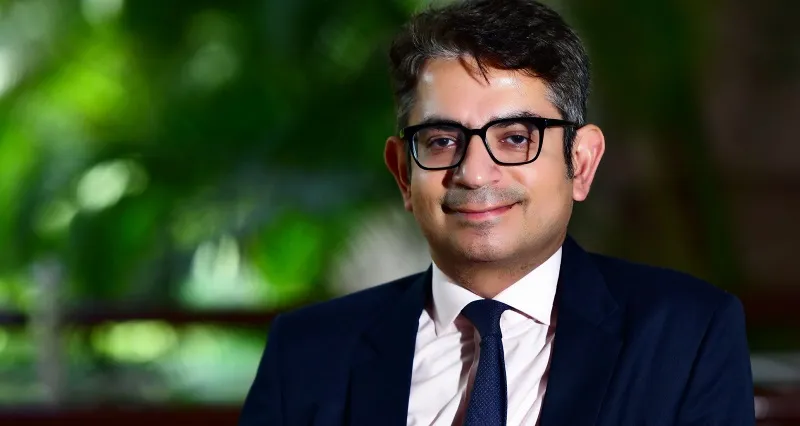Why PE fund Zephyr Peacock will continue to bet on Indian MSMEs
Mukul Gulati, Managing Partner of PE fund Zephyr Peacock, speaks to YourStory on why the fund is focused on MSMEs, its focus areas, investments made over the last 10 years, and details out current portfolio companies.
Founded by Thomas C Barry in 1994, is a global emerging markets investment manager that specialises in the creation and management of highly focused private equity funds.
The founder staunchly believed that there was a huge, increasing problem of disparity in income between developed and developing countries. “If we, as a society, don’t figure out how to close that gap, there’s going to be a real problem,” he said.
This is why focuses on emerging markets, providing equity capital for small and medium-sized enterprises in India operating in three sectors: financial services, food and agriculture, and infrastructure ancillaries.
Mukul Gulati, Managing Partner of Zephyr Peacock, is an alumnus of Columbia Business School and has been with Zephyr for 15 years. He says less than 10 funds in India are focusing on the small to mid-sized segment, which needs significant management support.
Mukul has been deeply involved in the growth of Indian SMEs from 2005 to the post-pandemic era. He speaks to YourStory about the fund’s SME investments in India, why it will continue to focus on the sector, and how finding diamonds in the rough makes it all worthwhile.
Edited excerpts from the interview:
(YS): Tell us about the total investments in India over the last 10 years.
Mukul Gulati (MG): Zephyr Peacock India has successfully deployed more than $120 million and has invested in over 20 small and mid-size companies across three focus areas - food and agriculture, financial services, and infrastructure ancillaries. Zephyr Management has sponsored or managed 26 investment funds with approximately $1.2 billion in committed capital.
Zephyr’s local teams strictly adhere to their respective mandates; investments are selected based on rigorous fundamental research. Our funds serve small to medium-size enterprises that are often ignored by larger private equity players. Zephyr funds provide growth capital to companies with proven business models and sustainable competitive advantages.
With a global network of partners, we are positioned to identify sustainable and secular growth changes, which lead to attractive investment opportunities for our investors. Zephyr currently manages investment funds in India, Sri Lanka, and pan-Africa.
Zephyr Peacock is the first institutional investor in over 70 percent of businesses it has invested in. Our portfolio companies have helped generate over one lakh formal jobs in India, and have enabled access to formal finance for 93,000 underserved customers.
YS: Can you tell us about your stint as a VC?
MG: After graduating from business school in 2005, I wanted to get involved in the emerging world, especially India, and give back. This was a career, but also an opportunity to live my passion of helping India with the discipline of private capital and emerging markets. Zephyr Peacock’s unique proposition in its market segment is research-driven deal sourcing and deep portfolio engagement. The fund has over 10 years of investing experience in India.
Zephyr Peacock has had multiple successful exits in India.
There was Pebs Pennar, the second-largest pre-engineered buildings manufacturer in India. Within three years of inception, the company grew its business to almost $100 million in revenues. Zephyr Peacock divested its stake via the IPO in September 2015 and subsequent sale over multiple tranches between 2016-18 in the open market.
Aizant Drug Research Solutions, an integrated drug development solutions provider, has partnered with leading global pharmaceutical firms to develop a diverse portfolio of new molecular entities and generic drugs for global markets. Zephyr Peacock divested its stake in Aizant as part of a growth capital financing by a private equity investor.
Thirumeni Finance was another success for us. It provides loans to Affordable Private Schools (APS) and allied educational institutes. The company began operations in 2013 and has a presence in Karnataka, Odisha, Maharashtra, Tamil Nadu, Madhya Pradesh, Rajasthan, and Gujarat. The dund divested its entire stake in Thirumeni Finance. The transaction was part of a $55 million investment by a consortium of investors.
We are preparing two other companies, 20Cube Logistics and MPower Financing, for IPOs in overseas exchanges. Not every company will be a candidate for an IPO, but companies with scale, profitability, governance, and easy-to-understand business models will be candidates. ZP is unique amongst early to growth-stage firms that have achieved several divestments via public markets.

Mukul Gulati
YS: Detail out your current portfolio for us. What makes them great growth companies?
MG: Shiksha Finance is an education finance company serving affordable private schools and students from low-income families. Shiksha provides loans to educational institutions for managing working capital requirements, building infrastructure, and purchasing/upgrading assets. The company also provides loans to students from low-income families pursuing K-12 and college education for their tuition fees. The company operates across six states in India.
Loanzen is a provider of digital financing for commercial vehicle operators. Commercial vehicle operators often have limited financing options due to inadequate credit history and lack of documented income. The company uses alternate data sources coupled with robust digital technologies to meet the unique needs of its customers.
While financing is big business, logistics is booming. 20Cube Logistics is an emerging-markets focused, asset-light, digital logistics company with offerings in air and sea freight forwarding, warehousing services, and third-party logistics (3PL). The company focuses on global forwarding, which requires the use of ocean or air carriers for transportation. Freight forwarding services include collection of goods, preparation of shipping documents, tracking transportation, freight consolidation, and procuring cargo insurance.
There is growth in new age companies. Let us talk about Mumbai-headquartered Maverix, which prepares chemical preservative-free, ready-to-eat (RTE) fresh Indian meals and beverages. RTE meals refer to food products that can be consumed without any additional preparation. The company’s products are available through online channels and at co-working spaces in Maharashtra, Karnataka, Delhi, Uttarakhand, Uttar Pradesh, Tamil Nadu, and Telangana.
One of our other growth companies is MPower Financing, which is a provider of education loans, primarily to non-US citizens pursuing higher education in the US and Canada. Access to educational loans is significantly limited for these students, and MPower provides solutions via its innovative credit underwriting process. The company’s strategic vision is to develop a global financial technology platform that facilitates education loans without collateral requirements to high potential students.
Lending is a large portfolio for us. Swarna Pragati provides housing loans to rural households in India. The company operates in the states of Odisha, Karnataka, Uttar Pradesh, Maharashtra, and Tamil Nadu. The company primarily serves the informal category of customers that are significantly underserved since most of the affordable housing finance players operate in semi-urban areas.
Food is a big area for us and we have invested in Utkal Tubers, a vegetable seeds company focused on the development of high-yielding, disease-resistant varieties of potato seeds.
Since its inception in 2016, Utkal has built capacity to produce and market-leading domestic varieties of potato seeds through a network of tissue culture labs, multiplication facilities for tuber production, controlled farming operations and state-specific distribution networks. Utkal has established a partnership with IPM, a leading potato seed company based in Ireland. Under this partnership, Utkal has imported 14 high-yielding, disease-resistant varieties of potato seeds for cultivation in India.
YS: SMEs are going to go through digital transformation, but what are you core investment ideals?
MG: Zephyr Peacock’s investment strategy has three core aspects: "Focus, Invest, and Build."
Let me talk about Focus. ZP focuses on the fast-growing and largely underserved segment of emerging growth-stage enterprises in India. The SME segment remains underserved by the private equity industry. While there is significant capital available for venture capital and large-sized deals ($20 million and above), small- and mid-sized businesses suffer due to lack of equity financing.
There are less than 10 funds in India operating in the small to mid-sized segment. Management teams in this market segment need significant support.
The second area is Invest. We source transactions via proprietary research in target sectors. The team follows a theme-based research model to originate deal flow and invest in high-quality enterprises.
When it comes to Build, we build portfolio companies via management support, operational assistance, and business expansion, with the objective of developing the required scale and attributes for an exit. The operations team is engaged in the day-to-day management of the investee company to ensure profitable growth.
The team is experienced and provides support to investee companies on financial management, product development, alliances development, market expansion, capital raising, general strategy, and others.
Edited by Teja Lele









